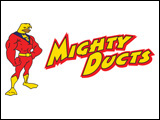Manitoba pork producers are expressing concern over the misconception that hog manure is being allowed to enter provincial waterways, threatening water quality within the lake Winnipeg watershed.
In March 2008 the Manitoba government announced moratoriums on the construction of new or expanded hog barns in much of the province and stricter requirements in areas not covered by the moratoriums, including a ban on the winter spreading of livestock manure effective in 2013 as part of its effort to improve water quality in Lake Winnipeg.
Manitoba Pork Council sustainable development programs manager Mike Teillet says suggestions that these tighter restrictions are needed to keep hog manure out of waterways are unfounded.
These suggestions have been ongoing for years.
It’s certainly something that troubles us.
We don’t believe that hog manure does end up in waterways or in such minimal amounts as to be almost negligible.
The fact is that manure storages, manure lagoons are not allowed to be drained at all by law.
If you compare that to municipal sewage lagoons, they do routinely drain them into ditches and creeks where as hog manure storages are not allowed to be drained.
There are also minimum setbacks around when application of manure is made on fields specifically for the purpose of not allowing run-off.
The other part is that most manure is injected or incorporated into the soil which also prevents manure run-off into waterways.
Our contention has always been that this simply is not something that occurs or occurs so seldomly as to be negligible.
Teillet notes pork producers have repeatedly asked the province for any evidence it has of hog manure getting into waterways and no such evidence has been received.
Source: Farmscape.Ca



